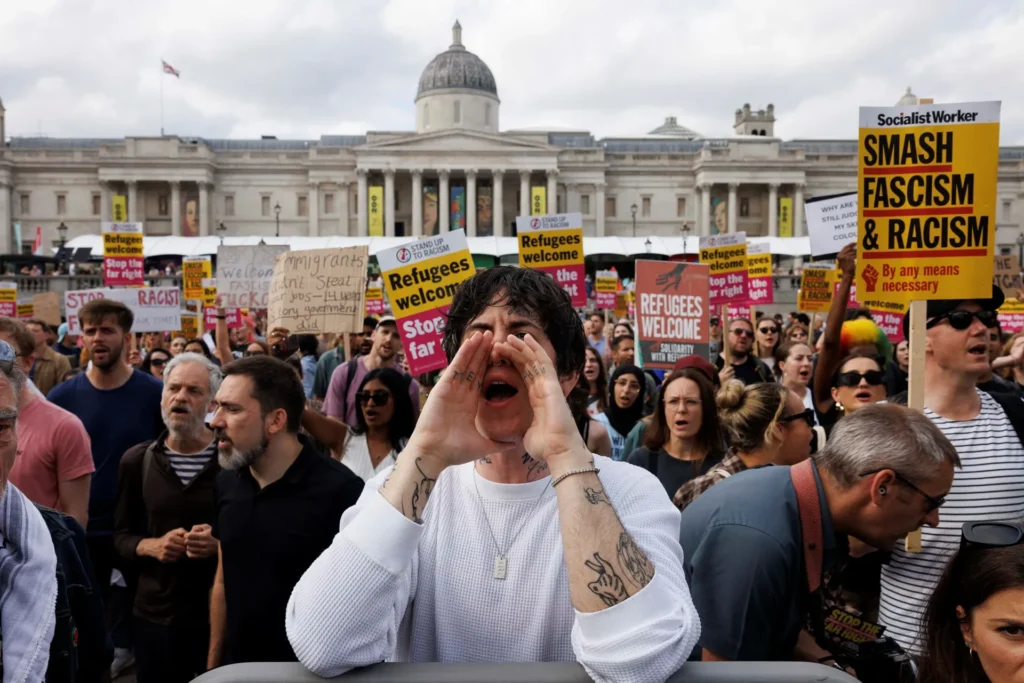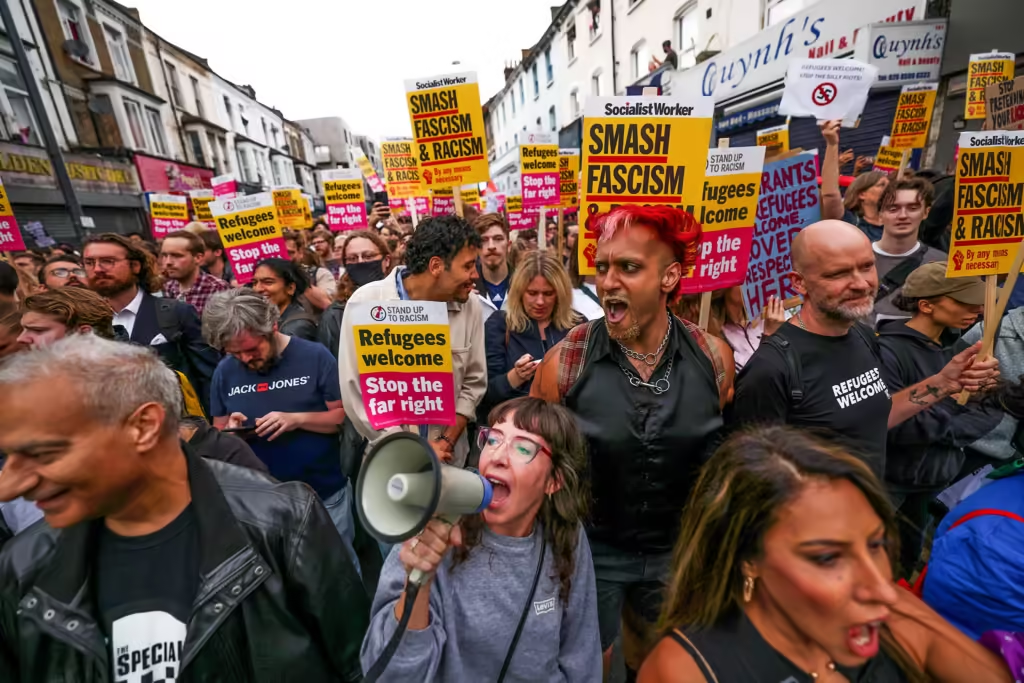
The results of a study indicate that nearly three-quarters of British citizens are concerned about right-wing extremism in the wake of anti-migrant riots. Additionally, a rising number of people are concerned about societal fractures.
In addition, the study discovered that although people generally believed that politicians did not react particularly well to the wave of disturbances, they largely felt that Keir Starmer answered effectively, but Nigel Farage did not respond well.
In a portion of the survey in which respondents were asked to describe their concerns, public services and the economy continued to be the most widely held concerns. Eighty-four percent of respondents and eighty-three percent of respondents, respectively, stated that they were extremely or fairly concerned about these issues.
Seventy-three percent of respondents indicated that they were concerned about right-wing extremism, which is eleven percentage points higher than the response they gave in March of this year when they were asked the same questions.
Immediately following the deadly stabbing of three young girls at a dance class in Southport on July 29, the findings come at a time when the United Kingdom is experiencing the worst unrest it has seen in a decade in a number of towns and cities.
Due to the fact that Axel Rudakubana, who is 17 years old and has been charged with their murder, was initially not named due to his age, far-right agitators aided in propagating internet misinformation about the incident. Some of these agitators claimed that the culprit was a Muslim refugee.
There was also a rise in concerns over religious extremism, with 74% citing it as a problem, which is 9 points higher than before. The Ipsos survey also revealed that there was an increase in concerns regarding left-wing extremism, which increased by 7 points from March to 59%.
According to the results of the survey, the majority of respondents (85%) believe that British society is either very or pretty divided. This is the greatest level of such belief since 2019, with only 11% opposing.
The response to the riots was questioned, and 57% of people indicated they thought the police had done a decent job, while 19% of people said they did not agree with this assessment.
In the case of politicians, 21% of respondents supported their reaction, while 42% of respondents were opposed to it. On the other hand, the verdict was more favourable for Starmer, with 39% of respondents feeling he had done a good job, while 29% believed the contrary.

On the other hand, the survey revealed that only 21% of respondents believed that Farage had addressed the condition in an appropriate manner, while 48% of respondents said that he had not.
Farage was subjected to criticism during the riots as a result of the fact that he produced internet videos in which he first questioned whether or not the police had concealed information about the individuals who were responsible for the attack and then challenged the idea that the disturbance was mostly the result of the extreme right.
The verdict on social media businesses was even more severe, with sixty percent of respondents stating that they had done a poor job in connection with the riots and only twelve percent praising their conduct.
The polls revealed a number of other noteworthy characteristics, one of which was that individuals expressed a significantly more pessimistic outlook on the issue of crime on a national scale in comparison to their own local neighbourhood.
When asked if criminal activity and antisocial behaviour are a significant problem in the United Kingdom, 86% of respondents said that this is the case, which is an increase from 79% in June. When asked about the circumstances in which they resided, however, this number dropped to just forty percent, which is one percentage point lower.
In a similar vein, when asked if they believed that the rate of crime had increased over the course of the previous year, 72% of respondents answered that this was the case nationwide, while just 41% responded that this was the situation locally.